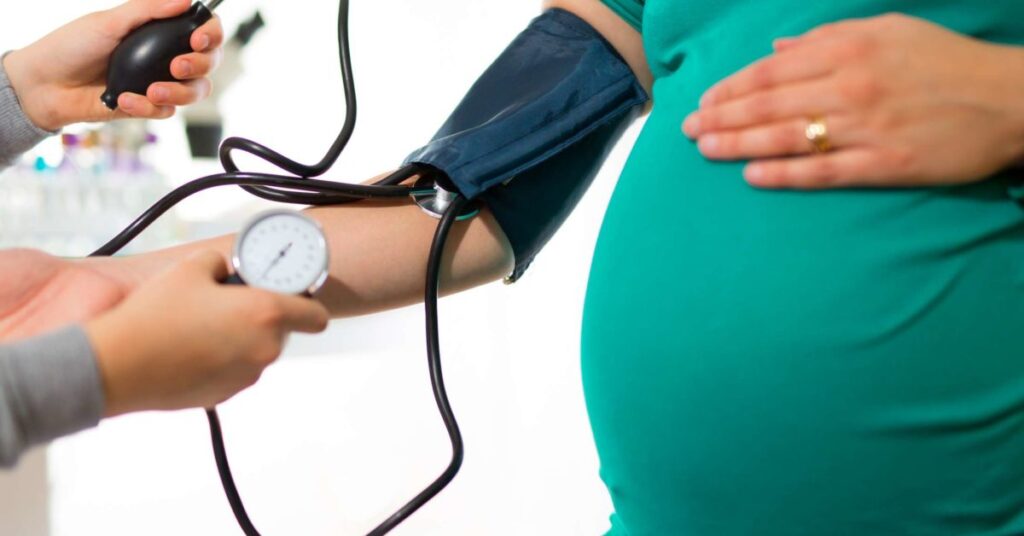High-Risk Pregnancy - Comprehensive Care for Complex Cases
A critical part of managing high-risk pregnancies can ascertain the cause, or the risk factors that can cause complication. High-risk pregnancy factors can broadly be split into four different categories. This include:
» Maternal age
» Lifestyle choices
» Pregnancy conditions
» Medical history

Signs and Symptoms
When you learn that you are pregnant, consult your doctor about the possibility of a high-risk pregnancy. Openly discuss any pre-existing medical conditions, how they can be managed and the possible consequences on the same on labour and delivery. Our expert team at AMVI Hospital has laid out some of the signs and symptoms of high-risk pregnancy to look out for.
If you experience any of the following signs of high-risk pregnancy, it is essential to get immediate medical attention:
» You lose consciousness – It wouldn’t be possible for you to take any action in this situation. Brief your partner, neighbour or colleague in advance of what to do in such a situation
» You experience vaginal bleeding
» You experience unbearable pain in your pelvis or belly
» You have fluid leaking from your vagina – This could be because the umbilical cord is bulging into your vagina.
Following warning signs require immediate visit to the doctor/ health facility
» Fever >38.5ºC/for more than 24 hours
» Headache, blurring of vision
» Generalized swelling of the body and puffiness of face
» Palpitations, easy fatigability and breathlessness at rest
» Pain in abdomen
» Vaginal bleeding / watery discharge
» Reduced fetal movements
High Risk Pregnancy Management
Management of high-risk pregnancy depends on the woman’s specific risk factors. In a high-risk pregnancy, healthcare providers keep a close watch on the woman and the pregnancy to detect any potential problems as quickly as possible so that treatment can start before the woman’s or fetus’s health is in danger.
Following conditions are listed to level as high risk pregnancy*
» Severe anemia Hb less than 7gm/dl
» Pregnancy induced hypertension, preeclampsia,
» Syphilis, HIV positive
» Gestational diabetes mellitus
» Hypothyroidism
» Young primi (less than 20 years), or elderly gravida (more than 35 years)
» Twin or multiple pregnancy
» Malpresentation,
» previous caesarian delivery
» Low lying placenta, precenta prevoia
» Positive bad obstetric history (history of still birth, birth, abortion, congenital malformation, obstructed labor, premature birth etc.)
» Rh negative
» Patient with History of any current systemic illness(es)/past history of illness
Following warning signs require immediate visit to the doctor/ health facility
» Fever >38.5ºC/for more than 24 hours
» Headache, blurring of vision
» Generalized swelling of the body and puffiness of face
» Palpitations, easy fatigability and breathlessness at rest
» Pain in abdomen
» Vaginal bleeding / watery discharge
» Reduced fetal movements

Prevention
If you are planning to get pregnant, it is natural that you would want to take every measure possible to prevent a high-risk pregnancy. At AMVI Hospital, we constantly emphasise that by practicing healthy behaviour and undertaking tests early, you can minimize the chance of a high-risk pregnancy. A high-risk pregnancy problems occurs due to one or more of the following reasons:
» A pre-existing medical condition in the mother such as diabetes or hypertension
» A pregnancy-related problems that lead to complications such as premature labour
» Age of the expecting mother, and,
» Lifestyle disorders
Diagnosis
High risk pregnancies can be diagnosed in a number of ways by a medical practitioner. The below tests will help in the identification of high risk pregnancy problems, and will be prescribed by your doctor depending on your condition or symptoms.
» Ultrasounds
» Blood Testing
» Urinalysis
Treatment
Depending on the risk factors that you are diagnosed with, high-risk pregnancy treatment will be prescribed. At AMVI Hospital, we are well-equipped with state-of-the-art infrastructure and a highly skilled and experienced team of professionals to give you the possible care for every type of high-risk pregnancy situation.
Listed below are some common methods of treatment of high-risk pregnancies:
This condition can increase the risk of complications in pregnancy. However, you can have a healthy pregnancy and birth by following a diet and treatment plan prescribed by a doctor.
During pregnancy, some changes to blood pressure medication may be recommended. Lifestyle changes such as limiting salt intake and regular exercise may also be prescribed for the treatment of this condition.
If you are experiencing mild symptoms, bed rest may be prescribed. You may also be asked to take vitamins E and C. Generally, this condition ends post-delivery.

